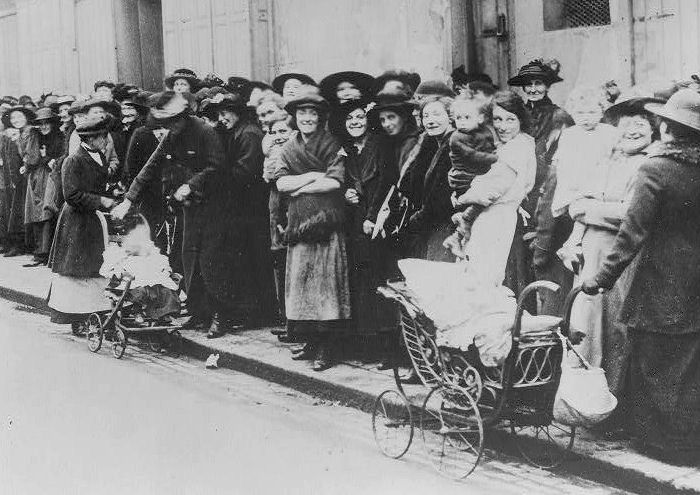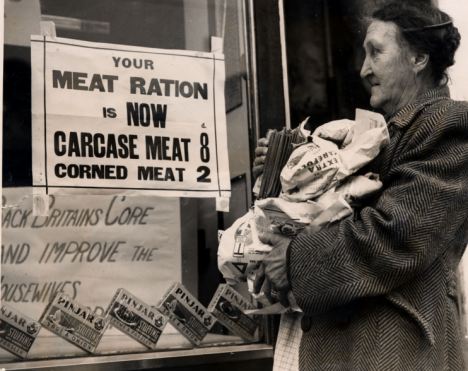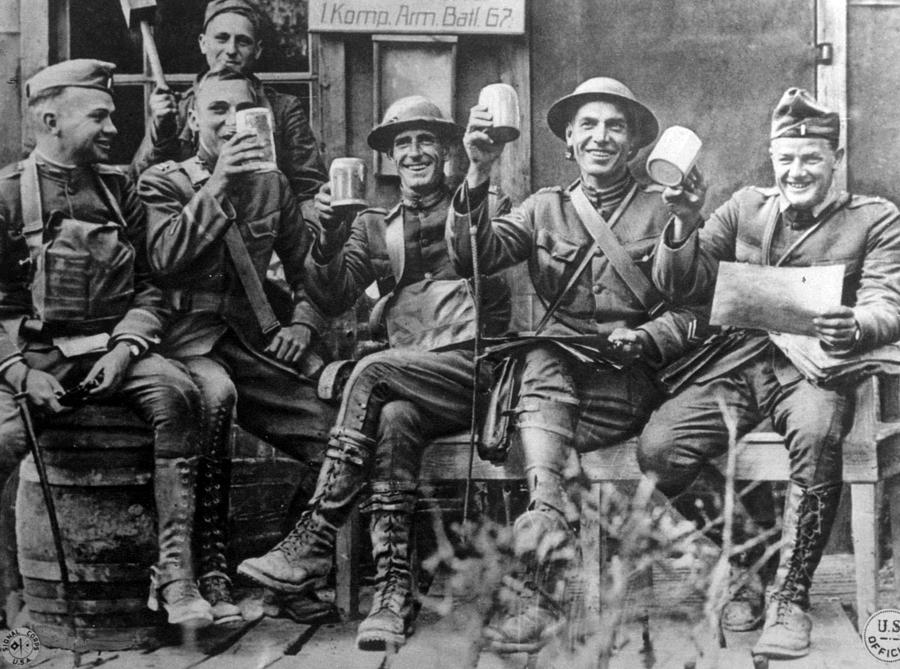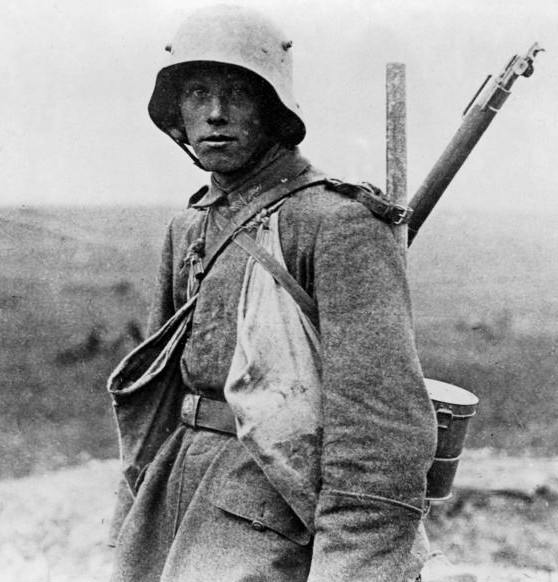Sentiment Strong Everywhere –
For Continued War and For Ending It.
A New Theme Emerges: Blame the Jews
Special to The Great War Project.
(21 January) “The desire to continue the war, and the hope of ending it, were in conflict in every nation.”
So writes historian Martin Gilbert, of the balance of sentiment in Europe a century ago. In public at least, the “moral imperative of victory,” writes Gilbert, “was still being publicly asserted as widely held.”
Britain has two million men under arms, and it is planning to bring another 420,000, despite shortages in troops and equipment everywhere.

Food shortages in Britain and across Europe.
Reports Gilbert: “Hunger and privation at home were as much of an influence for war weariness as the killing. A secret British report, based on a careful reading of British intercepted correspondence, [letters home] revealed a decided increase in letters in favor of an immediate peace.”
This weariness is not confined to Britain. In Berlin, at nearly the same moment in Germany a century ago, reports Gilbert, “more than 400,000 went on strike, demanding peace.
Within forty-eight hours these strikes had spread to six other cities.”
“The government reacts swiftly and firmly, declaring martial law in Berlin and Hamburg, and drafting many of the striking workers into the army.”
“But the hunger that the British naval blockade had exacerbated could not be assuaged by martial law or compulsory service.”
Writes Gilbert: “Civilians were being forced to eat dogs and cats, the latter known as roof rabbits. Bread was made from a mixture of potato peelings and sawdust.”

Rationing in Britain.
“Wartime privations,” writes historian Adam Hochschild, “inflamed an angry nationalism in Germany, “producing a foretaste of the hysteria that, a quarter of a century later, would reach a climax of unimaginable proportions.”
“Ominously making the fraudulent claim that Jews were shirking military duty, right-wing forces demanded and won a special census of Jews in the army.
Anti-Semitic books, pamphlets, and oratory proliferated.”
Gilbert observes: “By this time a hundred years ago, the head of the Pan German League was calling for a ruthless struggle against Jews.”
Nevertheless, there is more tentative talk of a negotiated peace. That sentiment emerges from Vienna, in words from both the Austrian foreign minister and the new German Chancellor.
Meanwhile, significant developments on the American side. “On January 18th, a century ago,” writes historian Gilbert…
“a full American division – the first — entered the front line.
It had been sent there to gain experience of holding the line and took no offensive action.
As soon as the Germans discovered that Americans were opposite them, they tried to demoralize them, launching a raid on an American listening post, killing two soldiers, wounding two and capturing one.”

Some of the first Americans in France.
“Then they ambushed an American patrol in No-Man’s Land, killing four, wounding two and capturing two.”
The inaction of the Americans causes much dismay and consternation on the American side. But they are still held back.
At the same time, thanks to the Russian collapse, this leaves the Germans free to move more than three and a half million German troops, reports historian Norman Stone, “with the horses to keep matters mobile.”

A young German soldier, Western Front, 1918.
”In other words, the German superiority could be concentrated with crushing effect, at any single spot on the line.”
